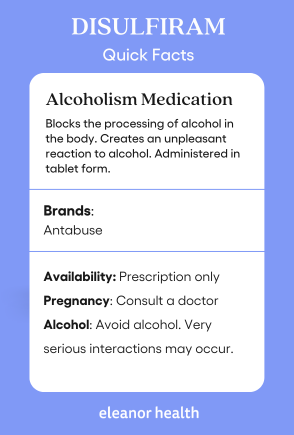What is Disulfiram?
Disulfiram is a non-addictive medication that helps people who want to quit drinking but have trouble resisting the urge. Disulfiram doesn’t treat alcohol intoxication, alcohol withdrawal symptoms, or alcohol cravings. Instead, works by causing a someone to get very sick if they drink alcohol. Unlike naltrexone, which is usually tried first, Disulfiram is used as a second option with doctor supervision. This means it’s often given after other treatments don’t work or if there are serious side effects.







